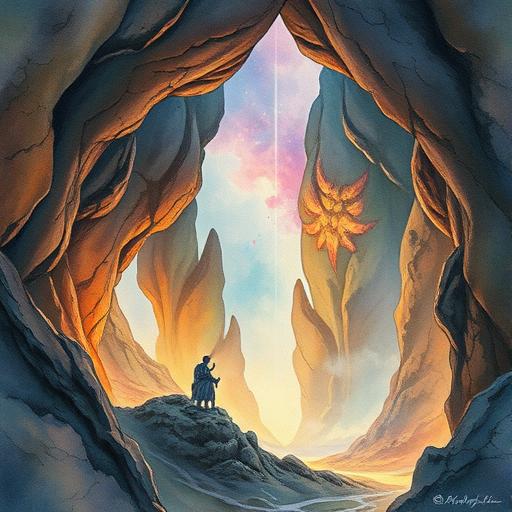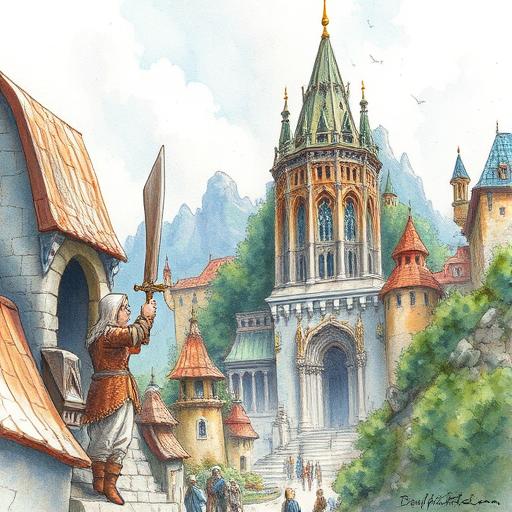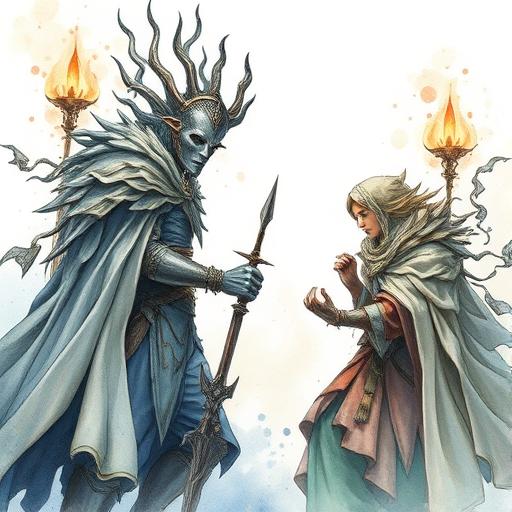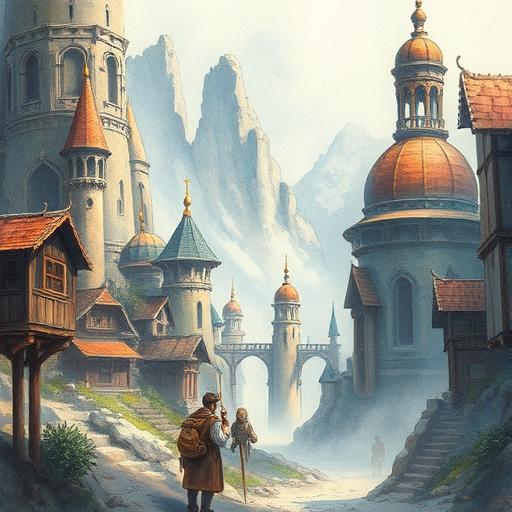Exploring the Intersection of Philosophy and Fiction in Worldbuilding Techniques
This article delves into the relationship between philosophy and fiction in worldbuilding, providing writers with practical techniques to craft rich, immersive, and thought-provoking fantasy worlds. By exploring the intersection of philosophy and fiction, writers can add depth and complexity to their stories.

Introduction to Philosophy in Worldbuilding
Philosophy and fiction have long been intertwined, with many authors using their stories to explore complex philosophical ideas and concepts. In the context of worldbuilding, philosophy can be used to create rich, immersive, and thought-provoking environments that challenge readers to think critically about the world and its many complexities. Consider the works of authors like Ursula K. Le Guin, who often explored anarchist and utopian philosophies in her fiction.
The Role of Ethics in Worldbuilding
Ethics play a crucial role in worldbuilding, as they help to shape the moral fabric of a society and inform the actions of its characters. When building a world, consider the following ethical questions:
- What is the moral code of the society, and how is it enforced?
- How do characters respond to moral dilemmas, and what are the consequences of their actions?
- How do different cultures and societies within the world approach ethics, and what are the implications of these different approaches?
For more information on building believable societies and cultures, check out our article on building believable societies and cultures in fantasy and science fiction.
The Power of Mythology and Philosophy
Mythology and philosophy are closely tied, with many mythological stories exploring complex philosophical ideas and concepts. When building a world, consider drawing on mythological sources to add depth and richness to your story. For example, the concept of the hero's journey is a common mythological trope that can be used to explore philosophical ideas about identity, morality, and the human condition.
Creating Immersive Environments
Immersive environments are crucial for drawing readers into your world and making them feel like they are a part of it. To create immersive environments, consider using sensory details and descriptive language to bring your world to life. For more information on creating immersive environments, check out our article on techniques for creating immersive and sensory-rich environments in fiction.
The Importance of Research and Real-World Inspirations
Research and real-world inspirations are essential for building a believable and immersive world. Consider drawing on real-world cultures, histories, and philosophies to add depth and richness to your story. For example, the works of authors like N.K. Jemisin, who draws on African and Asian cultures and mythologies to build her worlds, demonstrate the power of research and real-world inspirations in worldbuilding. For more information on writing diverse fantasy worlds with real-world inspirations and research, check out our article on writing diverse fantasy worlds with real-world inspirations and research.
Philosophy in Action: Case Studies
To illustrate the intersection of philosophy and fiction in worldbuilding, let's consider a few case studies:
| Author | Work | Philosophical Concepts |
|---|---|---|
| Ursula K. Le Guin | The Dispossessed | Anarchism, Utopianism |
| N.K. Jemisin | The Fifth Season | Power, Oppression, Identity |
| China Miéville | Perdido Street Station | Marxism, Postmodernism |
These case studies demonstrate how authors can use philosophical concepts to add depth and complexity to their stories, and how these concepts can inform the worldbuilding process.
Conclusion
In conclusion, the intersection of philosophy and fiction is a rich and fertile ground for worldbuilding. By exploring philosophical concepts and ideas, writers can add depth, complexity, and nuance to their stories, and create immersive, thought-provoking worlds that challenge readers to think critically about the world and its many complexities. Whether you're building a sprawling epic fantasy or a intimate, character-driven story, philosophy can be a powerful tool in your worldbuilding toolkit.
Comments
Comments are hidden to save bandwidth. Load them when you want to read or leave one.





